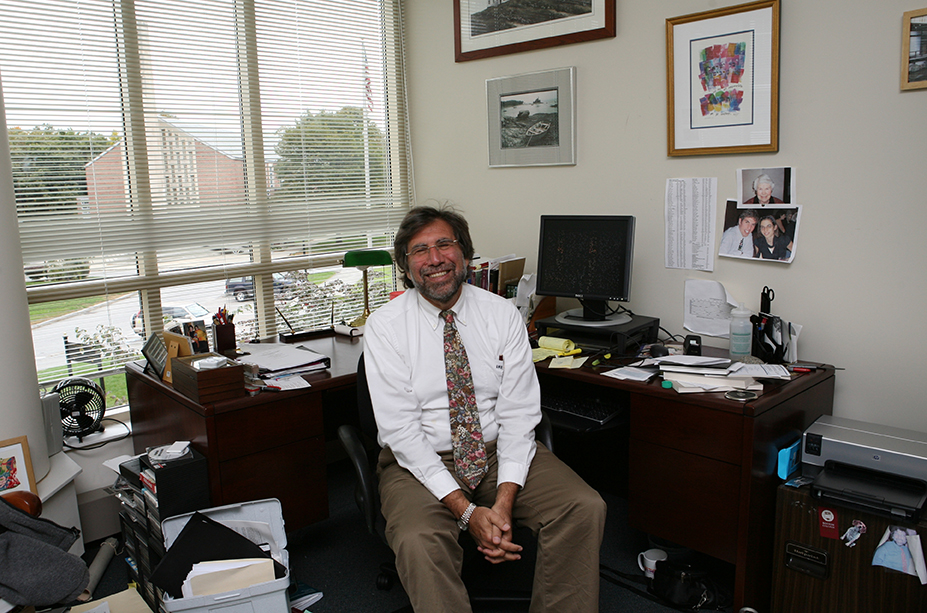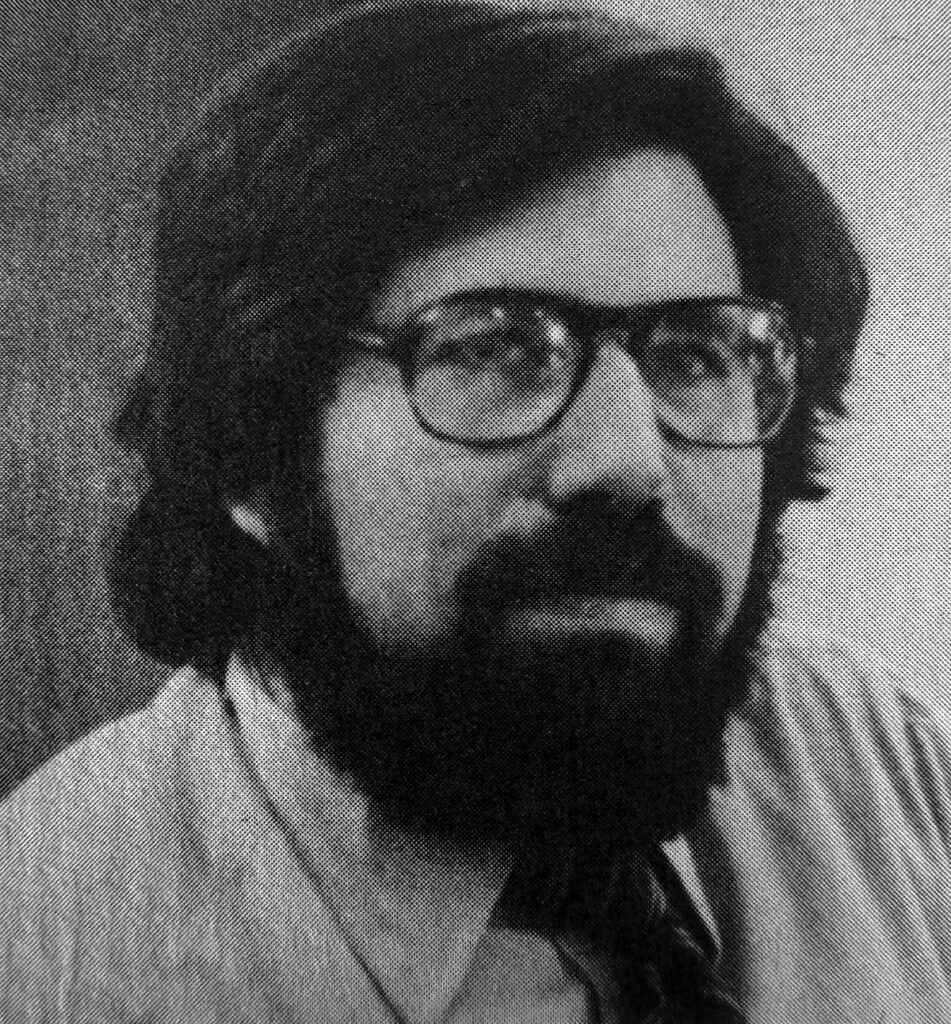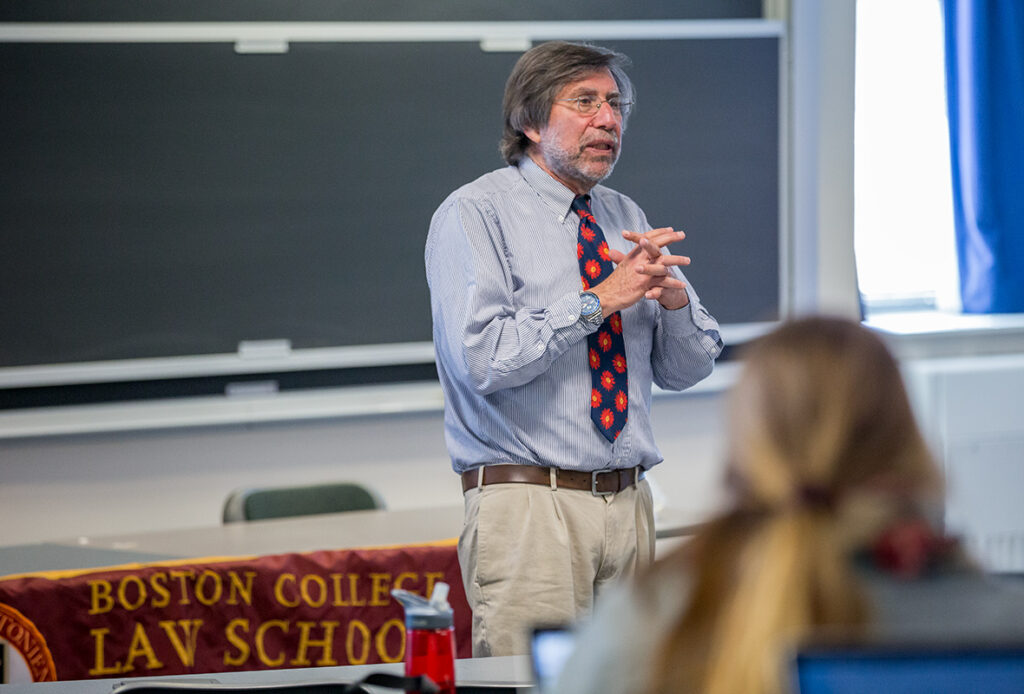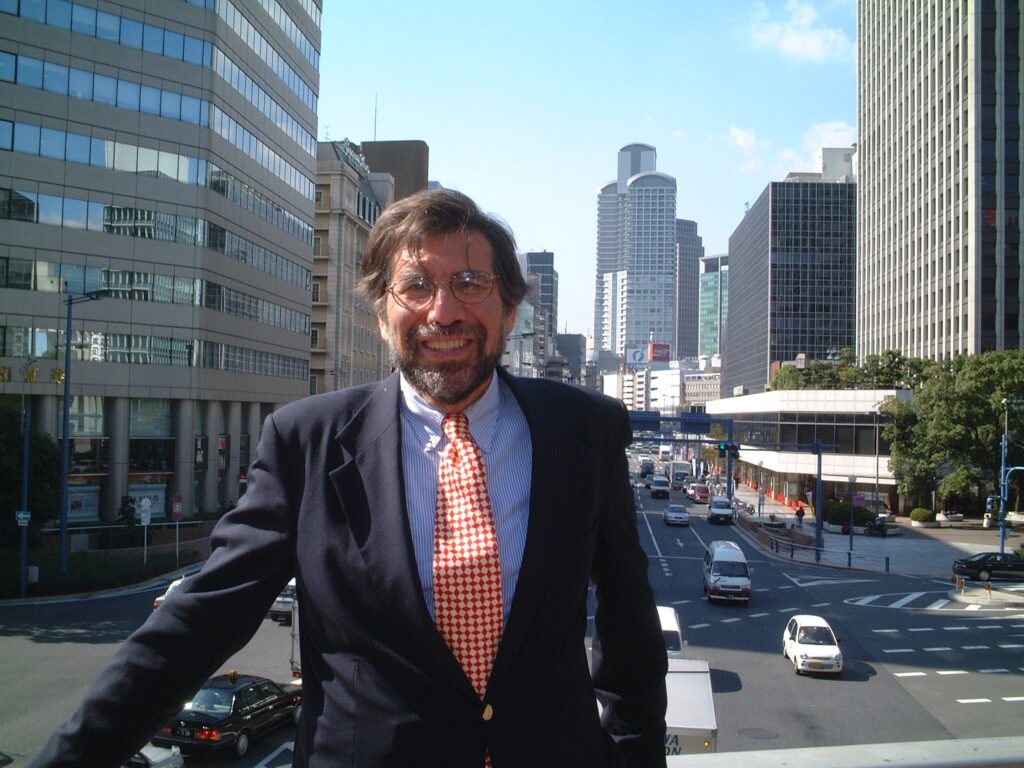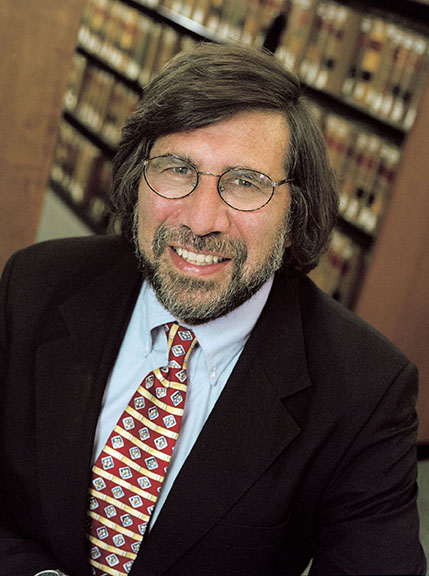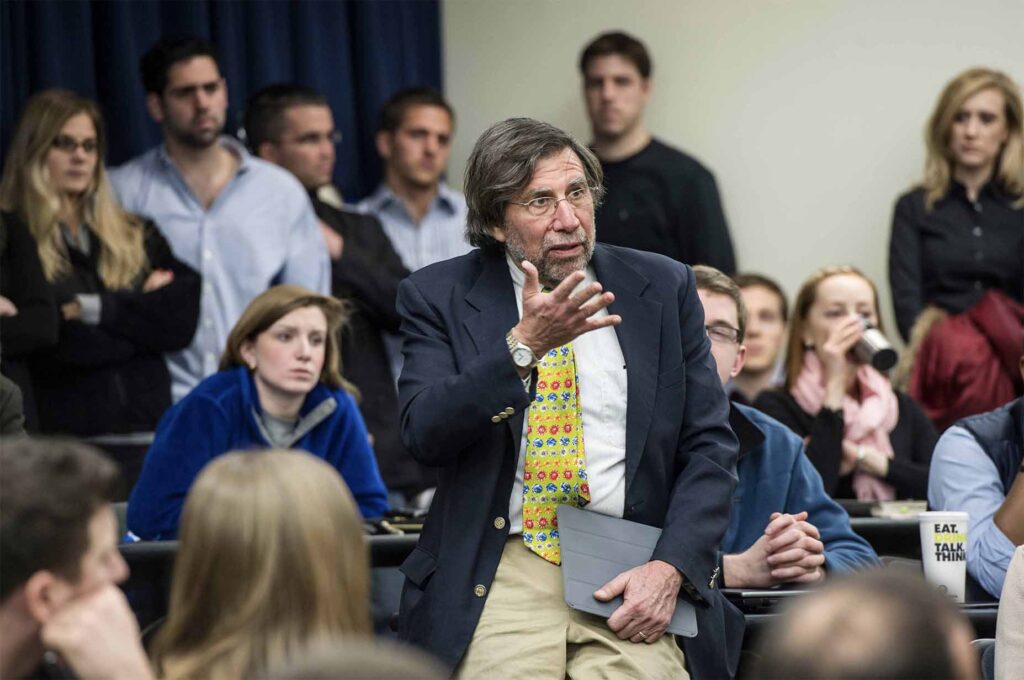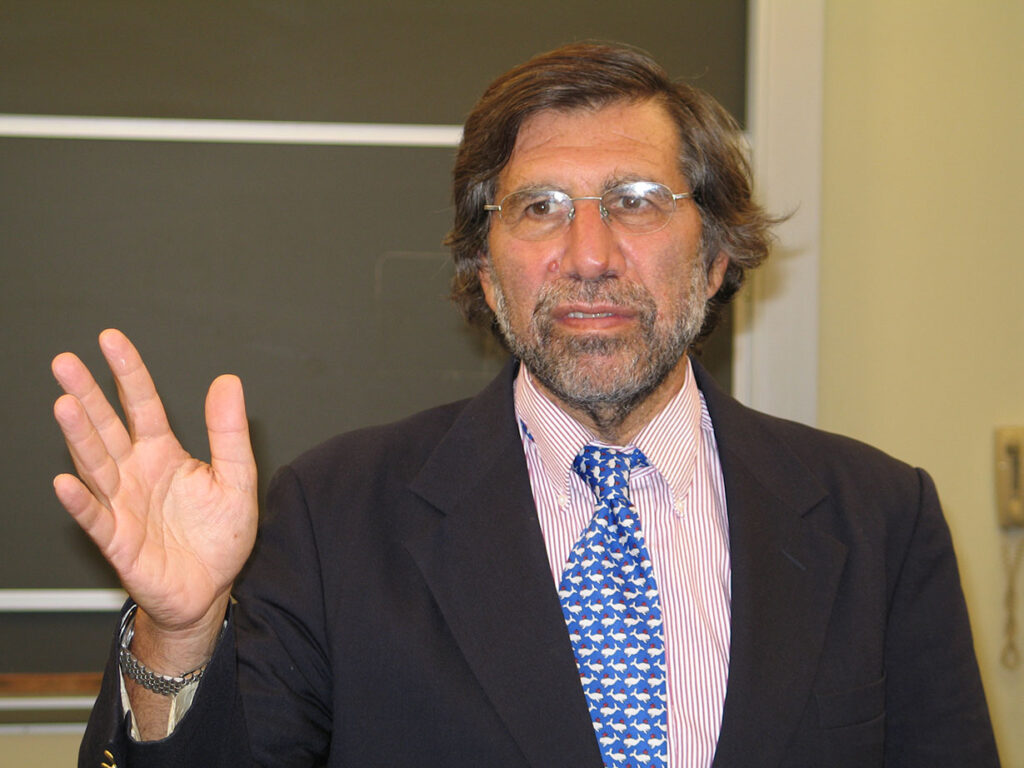BC Law Magazine sat down with Professor Robert Bloom ’71 to discuss his overarching impact, experience, and legacy at BC Law. Bloom is a Professor of Law and Dean’s Distinguished Scholar. After a fruitful career in legal services and civil rights law, Bloom focused his teaching efforts on all things procedure. At BC Law, he regularly teaches Civil Procedure, Criminal Procedure, and Intro to the Criminal Justice System. Outside of his teaching, Bloom serves as a recurrent expert on criminal informants for trials around the country, and publishes both case books and scholarship about jurisprudence under the Fourth Amendment.
As a BC Law alumnus himself, Bloom has watched the school undergo decades of evolution and has contributed to the community in a multitude of ways. Through this interview, BC Law Magazine strived to highlight the many areas where Bloom’s impact is felt by our campus community.
Q: Bella Burrell: What inspired you to become a law professor?
A: Professor Robert Bloom: Well, I started as a civil rights lawyer in Savannah, Georgia. It was the first year of my marriage and my wife, who was a graduate of Wellesley College, didn’t find much feminism in Savannah. So, I transferred to Cambridge Sun, the legal services organization, and did public housing and education work. I got a call from Richard Huber, the BC Law dean at the time, who told me that there was an opening at the Boston College Legal Assistance Bureau. I went through the interviewing process and eventually got the gig. So it wasn’t exactly planned, but I truly love teaching students.
Q: Bella Burrell: To that end, I think the community consensus is that you’re very imaginative and engaging in the classroom, but how would you describe your own teaching style? What are elements that you try to highlight in the classroom?
A: Professor Bloom: I like to have fun. One of the most difficult courses for students is Civil Procedure, and Civil Procedure is not that dissimilar to getting a root canal. So I try to make it fun for my students instead of intimidating. As a matter of fact, the book I use is sort of written for first graders. [BC Law Professor Mark] Brodin gives me a lot of trouble about that choice because, of course, he authored a Civil Procedure case book himself, but I think that choice was important.
I also hand out index cards to my students during their first year because I want to create a community. I ask them to tell me what they would like me to call them, and I use the cards and read about different things that I can share with the class that will interest these specific students. For example, one year I had three people who were previously dancers, so I would call on them together and they got to know each other that way. For a few years, I did an ugly sweater contest and that was fun, too. I think I care so much about this because I was a student here and the community is absolutely essential. The beauty of Boston College is that we create a community, and the students are an important part of that community.
Q: Bella Burrell: Do you have any particular moments of community connection that really stand out to you?
A: Professor Bloom: Well, I do try to call everyone by their first name, and I especially try to get to know the students better in Civil Procedure since it’s a first semester 1L course. Matter of fact, I have a large stuffed giraffe in my office that came from a student named Catherine. She was totally crunchy and granola, like an outdoors person. She didn’t seem very comfortable with me calling her “Catherine,” so I asked her what her family calls her. She told me that everyone calls her “Cat.” I told her I couldn’t call her Cat because I’m a dog person, so I called her my favorite animal instead: Giraffe. Of course, I checked with her to make sure this was okay, otherwise I wouldn’t do it. But she thought it was funny and so I called her Giraffe.
At the end of the semester, the students gave me a giraffe as a class gift. [Fellow Civil Procedure Professor] Mark Brodin would say, “Oh, look what the students from my class got for me after we covered the Greyhound cases–a bus!” My students didn’t give me anything until the big giraffe at the end of the class. So, I brought the giraffe into Brodin’s office with a wet paper towel and told him that the Giraffe wet his office. And he believed me!
Anyway, at graduation I finally met Giraffe’s mother and we all laughed about it. She was a great kid, too.
Q: Bella Burrell: What a great anecdote about the power of student connection. That’s so important.
A: Professor Bloom: That’s what I think I’ve always had and it’s because I really enjoy being with students.
Q: Bella Burrell: Since you mentioned him, let’s talk a little bit about your friendship with Professor Brodin. The two of you are sort of like a dynamic duo here on campus. How did that relationship come to be?
A: Professor Bloom: I love Brodin, he’s my buddy! We started working together before he was a professor here because we both got involved in a case that crossed our two specialities. I helped him prepare for trial and we really enjoyed working together. Fun fact, but I was teaching at BC before he came on. At one point, he taught a class here as a visiting professor and the students loved him so much that they wrote a letter to the administration begging to have him stay here.
Q: Bella Burrell: Do you find that your prior career as a civil rights lawyer impacts the way you teach these procedural courses?
A: Professor Bloom: Yeah, somewhat. At one point, I became a court appointed master, meaning that when a civil case generated too much paper, the court appointed me to rule on discovery motions. During that time, I was also teaching Civil Procedure, and the on-the-ground experience really helped me teach. Part of my joy in teaching Civil Procedure is that I’ve been there and I can give my firsthand experience to the students.
My personal background also influences the way I teach. I grew up in public housing. One of the things that Criminal Procedure really focuses on is race, unfortunately. I, myself, experienced considerable prejudice because of my Jewish heritage. I saw firsthand how much discretion police officers use in the neighborhoods I grew up in. So, I spend the beginning of my Criminal Procedure course talking about police and police personalities. That’s just one way I bring my own experience to the classroom.
Q: Bella Burrell: Much of your scholarship, of course, focuses on Criminal Procedure. What drew you to this subject area and what keeps you interested in this content today?
A: Professor Bloom: I think the notion of prejudice and the amount of discretion police had in my own upbringing got me involved in Criminal Procedure. I also have a genuine, personal interest in our Constitution. I also used to teach a course called Criminal Process, which at the time was a clinical course. Half of the class were prosecutors and half of them were defense counsel. I found that teaching the class was tricky ethically, and that this ethical tension was inherently an interesting part of Criminal Procedure.
Q: Bella Burrell: Do you have a favorite area in both Criminal and Civil Procedure?
A: Professor Bloom: The Fourth Amendment is probably my favorite area of Criminal Procedure because it includes police actions. I’m actually currently writing an article about what we can learn in the United States from the current structure in Northern Ireland regarding peace training and trusting relationships with the police. Northern Ireland revamped the police to hold bad officers accountable. It literally changed their culture when they teach their police officers more about human rights than how to shoot a gun.
Q: Bella Burrell: You’ve also authored multiple case books with recurrent co-author Mark Brodin. What was that process like? What made you take on this challenge?
A: Professor Bloom: Honestly? Case books are relatively easy. It’s a lot of organization work at its heart. I’m also the author of several Moore’s volumes and am now the editor for a lot of that work. I find that most of my work is editing and organizing content whereas my own scholarship involves me developing novel ideas.
One other area of my writing that I’ve really enjoyed over the past 10 years includes involving a student, usually a 3L, who will join me and co-author an article for independent study credit. I really let the student take the reins creatively. Because I’m a co-author, the student’s work is usually able to more easily get published in reputable journals, which looks great for young lawyers starting their legal careers.
Q: Bella Burrell: Are there areas of Criminal Procedure or Criminal Justice that you think future researchers need to dig into further?
A: Professor Bloom: Well, given the digital world of ours, our phones now have as much information as you would get from searching a house. How the court deals with the digital world under the Fourth Amendment is very important and [Supreme Court Justice Antonin] Scalia, in Fourth Amendment jurisprudence, had a sense of how to deal with that. I certainly don’t agree with everything that Scalia wrote, but he at least had a formula to deal with evolving technologies.
Q: Bella Burrell: Switching gears a little bit, let’s talk about your experience at BC Law over the years. What was it like being a student here?
A: Professor Bloom: Well, I did pretty well. Because I was a somewhat poor kid, I had to pay for my own education and so I worked really hard. The community here made it all worth it. When I was a student, I took a course taught by Huber on the old law school campus, which was right by a cemetery. I remember on multiple occasions they would play taps at the cemetery—this was during the Vietnam War—and I saw how moved Huber was by that. It gave me a real sense that the professors here were real people who cared about us, cared about our community.
There also wasn’t an intense notion of competition. I really liked that, and it made me really excited to come back here. That’s what I remember most; the sense of the community, the kindness of the professors, the kindness of the administration.
I also remember a good bit about Jesuit educational influence. There was a real priority in using your education in the service of others. Father Robert Drinan, who actually filed the Nixon impeachment motion when he was in Congress and was a former dean here, talked a lot about training architects for society. That really rang true to me and characterizes my experience at BCLS.
Q: Bella Burrell: In the spirit of giving back, in 2020 you started the Bloom Emergency Fund to support students who are facing emergencies. What inspired you to start the fund?
A: Professor Bloom: I’ve had students come to me, my computer’s broken, I’m about to take exams and I have no money. So what did I do? I give ’em my credit card. I’ve had students facing crises throughout my career. So I created this fund and started it with my own money, and people contributed to grow it. It’s now an endowed fund with an appointed committee of people who decide how the funds are used. It’s all to give back to the community that gave so much to me.
Q: Bella Burrell: Absolutely. So, to round us out, what do you hope your legacy is?
A: Professor Bloom: Boston College Law School is known as a place that trains good lawyers. And to be a good lawyer, you have to be smart, you have to care, and you have to have some sort of moral conscience. My hope is that we continue to produce those kinds of people while maintaining our community. So to the extent there’s a legacy, I hope it’s that I trained good people that know something about lawyering.
As Father Drinan said, we train architects of society. That’s why I became the first advisor to the Public Interest Law Foundation, the chair of the Admissions Committee, a loud promoter of diversity, etcetera, etcetera. That’s what I hope my legacy is after my time at Boston College Law School comes to a close.
Professor Bloom helped create a fund that provides emergency funding for students in need. Donate to that fund here, by selecting the “The Law Bloom Emergency Aid Fund” under area of support.


